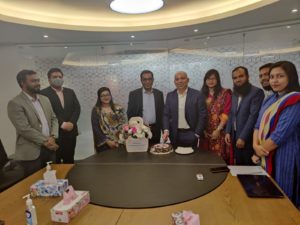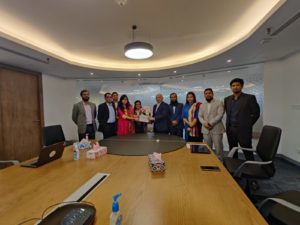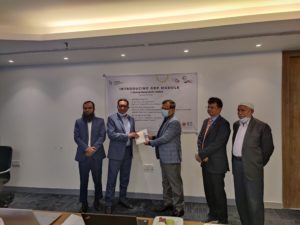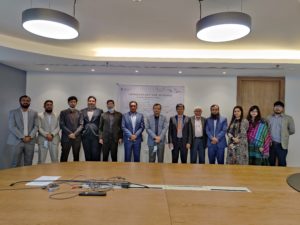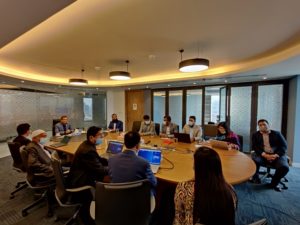But first, what is a startup? Although it may seem quite intuitive, there is ambiguity about its definition.
Broadly speaking, a startup must satisfy the following criteria. Firstly, it has to be innovative either in product or service, market or process. Secondly, it must use technology to augment the business in a way that it has to be scalable above average.
In addition, a startup has to disrupt the existing way of doing business or meeting customer needs. Also, startups are generally light in fixed assets. Key performance Indicators of startups are also quite different from those used for evaluating traditional businesses.
One of the important indicators for measuring the performance of a new business is the break-even point (BEP) or break-even period. For startups, BEP is not important. Because BEP deters the growth of startups whereas startup growth is the name of the game.
A new set of KPIs has evolved to measure the performance of startups, namely, customer Acquisition cost (CAC), the number of monthly active users, the lifetime value of customers, average revenue per user, customer churn rate, revenue growth rate, monthly burn rate, monthly recurring revenue, gross profit margin, conversion rate etc. For a marketplace startup, gross merchandise value or GMV is also considered.
Data suggests, globally 8 out of 10 companies with the highest market capitalisation emerged from startups.
The history of startups in Bangladesh goes back to the emergence of Bkash in 2010, funded by ‘Money in Motion’ of USA and Brac Bank Ltd. Subsequently, IFC had financed the project in 2013 and Bill and Melinda Gates Foundation did so in 2014. Ant Financial, a sister concern of Ali Baba, provided funding to Bkash in 2018 when a few of the early investors withdrew.
Bkash’s valuation soon rose to approximately $1 billion (as per the Annual Report of Brac Bank) making it the 1st unicorn of Bangladesh. It took around eight years for Bkash to reach this level.
For comparison, the market cap of Brac Bank as of 16th September 2021 (at Tk48.30 market price) is Tk67.24 billion ($781.8 million). Brac Bank was established in 2001. This is the difference between a startup and a traditional, asset-heavy, brick and mortar business.
Startups such as Bkash, Pathao and Brain station 23, recently bade goodbye to their initial investors. Although not disclosed to the public, market speculators suggest that the investors received very high returns from these ventures.
However, there is no reason to be complacent yet. Startups from competing nations are doing far better than us. For instance, startups in our neighbouring country, India got US$ 10 billion investment in 810 deals in 2020. Had the world not been affected by Covid-19, this figure would have been higher. Because in 2019 startups in India received a higher amount ($ 11.1 billion) in 755 deals.
In addition, Bangladesh ranks 116th in global Innovation index while India ranks 46th. Even Sri Lanka is ranked 101st, 15 places ahead of us implying the poor and inhospitable startup ecosystem in Bangladesh.
India’s start-up investment is around 0.3% of its GDP, which is estimated at $3.05 trillion (nominal, 2021). On the other hand, Bangladesh received $39.5 million in 2020 which is .01% of its GDP of 353 billion in (nominal, 2021). That means India’s Startup Investment GDP ratio is 33 times higher than ours.
Most Indian startups had begun their journey back in the mid-eighties, while the very first Bangladeshi start-up, Bkash was launched only in the 2010s. So, they are roughly 25 years ahead of us in terms of start-up development.
But that does not necessarily mean that we have to keep that distance. To bridge the gap between Bangladeshi startups and their Indian counterparts, several issues in Bangladeshi markets need to be addressed.
Bangladesh needs to sort out several issues such as IP (intellectual property) rights registration, repatriation of capital and profit by the foreign investors, efficient handling of contract and company act related disputes, industry-academia collaboration etc.
The government should also provide fiscal incentives such as tax cuts and subsidies to investors for investing in startups or venture capital funds. Bangladeshi universities are infamous for their poor research output and most pundits often point their fingers at the sheer dearth of funding.
Hence, government and relevant authorities should patronise research and development in both the government and non-government sectors as well as in academia.
And finally and most importantly comes the political will to become a “start-up nation”. As the saying goes “it needs a village to raise a child” the same way it can be said “it needs a nation to develop a start-up ecosystem”.


